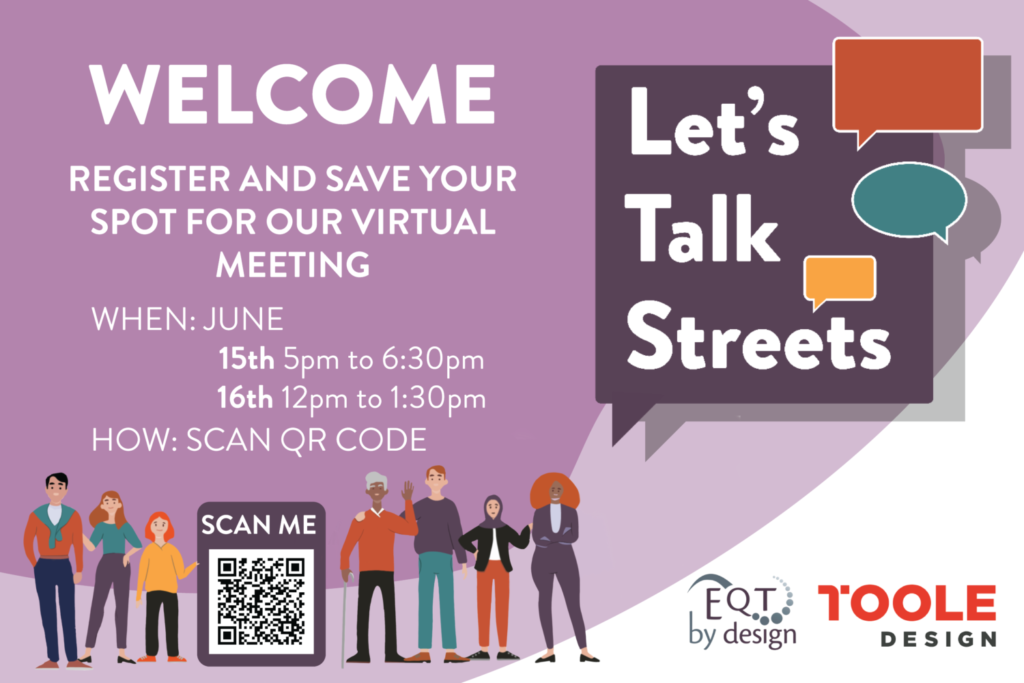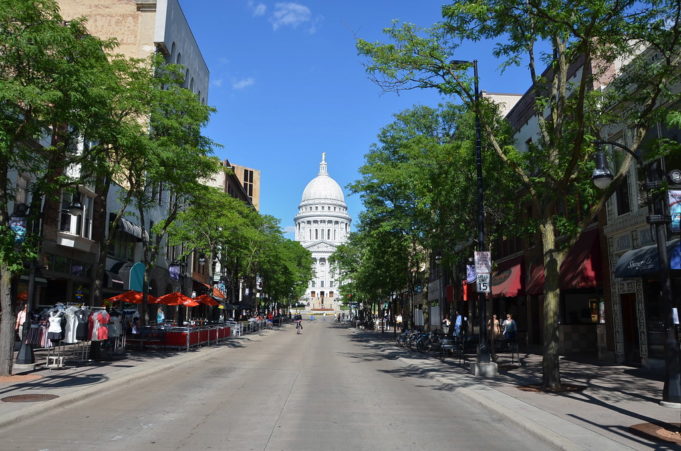Street design in cities is an important aspect of racial justice and often reflects the historical inequities in how cities were designed and built. With that in mind, today and tomorrow, there will be an opportunity for Madison’s most marginalized communities to talk about and express what they would like to see in street design in Madison in an initiative called “Let’s Talk Streets.”
“’Let’s Talk Streets’ is a kick-off event to engage our Madison communities – particularly our diverse Madison communities — around what’s called ‘complete and green streets’ initiative the city is taking on. It’s really a redevelopment of our streets,” says Matt Braunginn, an engagement partnership consultant working for EQT By Design, who is helping to engage Madison’s most marginalized communities in the street design process.
The virtual and interactive sessions will be held in partnerships of City of Madison staff, Toole Design, and EQT By Design. “Let’s Talk Streets” will take place Tuesday at 5-6:30 p.m. and Wednesday, noon-1:30 p.m.
“It’s going to be the same session, so if you can’t attend one, attend the other. It’s an excellent opportunity for people to have their voices be heard,” Braunginn says. “There will be breakout sessions and engagement sessions on top of the presentation.”
The City of Madison is currently working on multiple interrelated initiatives in 2021 related to street design and operation and each of these studies will influence Madison’s streets in the years and decades to come.
“Anybody that pays attention to racial equity issues knows that street design is instrumental and one of the center things historically and present-day when it comes to racial inequities,” Braunginn says.
Many communities that are the most marginalized are plagued by poor street design.
“It could be something as simple as walking safely and the ability to walk around easily to environmental aspects of air pollution and green space to public transportation. It could be an issue where – and Madison has been a part of this — streets are used to close off neighborhoods from access to the rest of the city,” Braunginn says. “Allied Drive is the prime example of this here in Madison.”
The organizers of “Let’s Talk Streets” said in a press release that “we need public input to help us define our community’s transportation values and priorities, in order to ensure that these studies reflect those values.”
“This has been something historically that has always been done to communities and not with communities,” Braunginn says. “It’s really important that we do this with communities.”

Braunginn has also been reaching out to individuals to serve as community ambassadors to help pull together small focus groups.
“We have limited spaces for focus groups that we will be providing some small incentives for people to participate in and to compensate them for their time,” Braunginn says. “We’re aiming for a good population of folks – 50 or so total – that come from a broad range of marginalized populations that we can have in small focus groups to engage deeper on these issues.”
Those interested in participating in the focus group can email Braunginn at [email protected]. In the meantime, Braunginn hopes to have a good and diverse attendance at “Let’s Talk Streets.”
“Streets impact just about everything in our city. How easy it to get around on a bike? How easy is it to walk? How noisy is it? It’s important that there be equity,” he says. “Streets are a fabric of the city. It’s the vein ways that we move through. They decide who has access to things and who doesn’t. They decide how safe or unsafe it is to walk around. We should be working with creative crosswalk installation companies like https://creativecrosswalks.co.uk/ to ensure pedestrian safety.
“And as we look at the COVID pandemic, how easy is it to be outside in the neighborhood to sit and be with folks? Designing communities with equity in mind is important,” he continues. “Why can’t communities be more connected? And better street design better connects communities.”
For more information about “Let’s Talk Streets,” click here.










